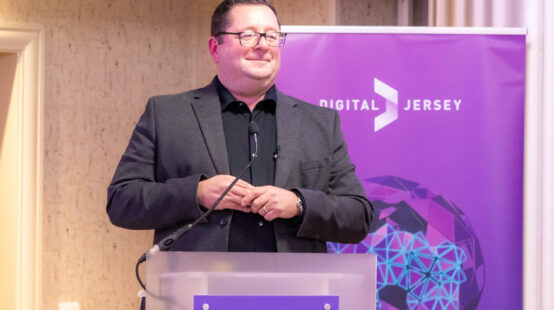
There is a lot of media coverage about the ‘FinTech’ industry at the moment, be it generated from the UK start-up scene or featured in items like UK FinTech 50, it has become a growing buzz phrase, and sometimes, a bandwagon. In relation to Jersey I hear many interpretations of FinTech from numerous quarters ; the local finance industry, entrepreneurs, VC’s and the media etc. and I’m often asked for my opinion. The issue can be complex, but I think there are at least two distinct fractions;
A good example of an Emergent Fintech start-up company is www.currencytransfer.com , which was set up to address the (young!) founder’s own requirement to receive money whilst at university. However, more typically, these types of businesses have teams steeped in financial services, (often with phd’s in maths or physics), who are frustrated with the behemoths they work in and believe their customers or markets can be better served. Others provide a completely new lens with which to view markets; Heckyl is one such Fintech start up – they merge 1.5 million globally available data points (including social media) then score them with respect to their ability to effect markets using complex algorithms that correlate the results with a fund managers portfolio. The result is dramatic; their product delivers market effecting news several hours ahead of the mainstream media creating a real and very hard to copy advantage.
So why does FinTech matter?
The fact is, these businesses are effective because the finance industry is not as agile as the Fintech community, and perhaps not as in touch with the consumer as they might wish to be. I will use Banks as a proxy for financial services in the following explanation but in general this holds true. As technology continues with unrelenting pace Banks find it increasingly difficult to keep up with customers new expectations, resulting in frustration potentially through a combination of things, perhaps a lack of understanding of the customers changing needs, or inability to react through multiple layers of internal process, security, testing, approvals and compliance leading to a less that optimal deployment model. In a world where the customer is becoming more sophisticated there is an expectation for a more flexible customer experience, designed around their changing needs. To make matters worse for the Banks it has become easier for consumers to move between banks thanks to UK government initiatives consequently people are voting with their feet to access mobile banking, app banking and similar conveniences. The response from struggling organisations is often delivered from senior executives with phrases like ‘re-engaging the customer’ or ‘building a digital experience’ and other sound-bites, but in truth unless they are a start-up bank like Fidor or Metro it is difficult to execute swiftly.
So what can Banks do? Partly, they need to stick what they are good at i.e. the ‘fin’; core banking, safe custody, wholesale money exchange and lending. These core services can be re-packaged and distributed via companies who are product, customer and country specialists and who are ‘tech’ from the ground up.
These companies create niche financial products from the wholesale product, typically they are regulated firms themselves and their executives are equal peers both technology and financial neither is dominant.
This is, however, much more than re packaging, the solutions are technology led given an understanding of the customer and the art of the possible. Steve Jobs did not believe in asking the customer and Henry Ford said his customers would want faster horses. It’s the same with FinTech companies; their understanding of the art of the possible can deliver beyond the imagination of the consumer and outside the typical constraints of the banks.
Its far from simple though – FinTech companies have to develop not only the technology to solve the business problem but conduct well thought through customer journeys; highly aligned products combined with an agile lean start-up approach to product development. Typically transparency of pricing, simplicity, as well as fair and reasonable pricing enables a frictionless customer journey, which builds brand loyalty. The customer belongs then to a FinTech company who understands them and no longer the disintermediated bank.
We do need to be careful of the meaning of disruptive, in this model we still need the banks to do what they are good at, this then is an evolution of the financial system that aligns products and consumers, this is not over throwing the banking system.
Whilst this picture will not happen overnight there are signs of change, for example, Barclays with their TechStars accelerator program http://www.barclaysaccelerator.com. I recently spend time with the Barclays executive that heads up this program, his views align very clearly with this description. Techstars run the FinTech focused accelerator in partnership with Barclays who no equity, they provide the startups access to real regulated systems and data sets so they can interface to real world systems and innovate within the limits within the current regulated environment. The result is a true win win; Barclays are exposed to some of the brightest talent and ideas, they help mentor them but importantly do not tie them into Barclays. This provides the means to explore areas that do not interest Barclays today but leaves the door open to collaborate in future – in return the Fintech companies gain insights they otherwise could not. This then in my definition of a true symbiotic Fintech eco system, an engaged, established player working to the benefit of both the start up community and the bank. A positive consequence is that as start-ups typically find banking early relationships difficult but here is a bank looking at them through a completely different lens and willing to help. KPMG play in a similar arena, they align with a number of accelerators and work with start-ups that provide complementary offerings that have value to their client’s. Furthermore, in an extension to the Barclays model they have their own growth tech fund where they will invest or even acquire, see http://www.kpmgtechgrowth.co.uk/tag/accelerators/
So where can Jersey fit in?
The UK financial services sector accounts for approximately 9.4% of UK GDP, it is one of the largest globally and significantly more active than its European counterparts. Jersey is a conduit for about £1.5 trillion of foreign investment into the UK. So there is a real opportunity for Jersey to be involved but it is not through the traditional methods.
The established channels and messages that Jersey Finance (JFL) and the financial services community currently promote need to be be augmented with Jersey’s ambitions in this area. JFL can be a strategic conduit and the extensive Jersey network could promote the opportunities and benefits of Jersey and thereby help secure Jersey’s niche in the FinTech sector.
Next and perhaps the biggest opportunity and differentiator sits with the regulator. The Jersey Financial Services Commission has already demonstrated that it is open to new markets and products. Regulation of the world’s first Bitcoin expert fund is testament to their dynamic and open approach, and this is part of the attraction of Jersey. The FCA has launched project innovator hub, which could be accused of copying the Jersey culture http://www.fca.org.uk/news/innovation-hub-now-open-for-business. The FCA have recognised they have been slow to support and help the burgeoning FinTech sector. I believe there are opportunities for the Jersey Financial Services Commission and the FinTech community to push the envelope even further.
The Barclays 2015 Accelerator Programme event is taking place at the Digital Jersey Hub on Tuesday 16th December, providing an opportunity to ask questions about how to get involved in the programme. Click here to register to attend: http://bit.ly/Barclays-Accelorator-Programme



